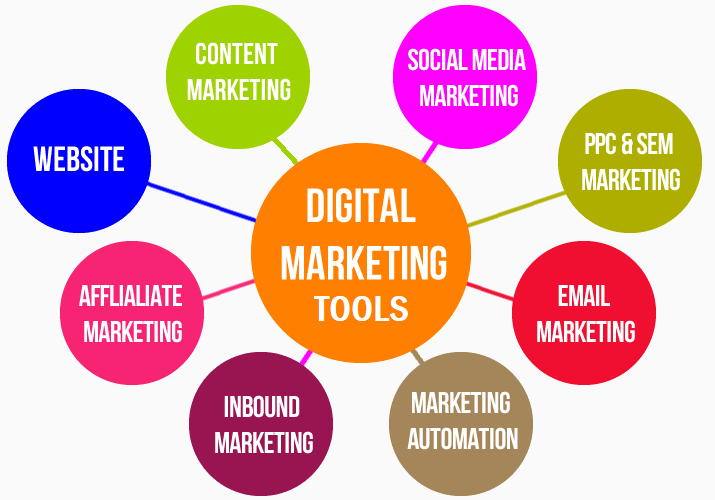Delving into How Digital Tools Can Help You Automate Your Business, this introduction immerses readers in a unique and compelling narrative. In today’s fast-paced world, businesses are constantly seeking ways to streamline their operations and boost efficiency. One powerful solution to this challenge is leveraging digital tools for automation.
Automation has revolutionized the way businesses function, offering numerous benefits such as increased productivity, improved accuracy, and cost savings. By embracing automation, companies can focus on strategic initiatives while routine tasks are handled efficiently by digital tools.
Importance of Automation in Business
Automation plays a crucial role in enhancing efficiency, reducing errors, and saving time in business operations. By automating repetitive tasks, businesses can streamline processes, improve productivity, and focus on more strategic activities.
Benefits of Automating Business Processes
- Increased efficiency: Automation helps in completing tasks faster and with fewer errors, leading to higher productivity levels.
- Cost savings: By automating routine tasks, businesses can reduce labor costs and reallocate resources to more critical areas.
- Improved accuracy: Automation minimizes human errors, ensuring consistent and error-free results.
- Enhanced customer experience: Automation allows for quicker response times and personalized interactions, leading to improved customer satisfaction.
Key Tasks that Can be Automated in a Business
- Accounting and finance: Automating invoicing, payroll processing, and expense management can streamline financial operations.
- Marketing: Automated email campaigns, social media scheduling, and lead nurturing can improve marketing efficiency.
- Customer service: Chatbots, automated ticketing systems, and self-service portals can enhance customer support processes.
Examples of Industries Benefiting from Automation
- Manufacturing: Automation in production lines has significantly increased output and reduced human error.
- Healthcare: Automated appointment scheduling, billing, and record-keeping have improved patient care and operational efficiency.
- Retail: Automated inventory management, order processing, and customer service have enhanced the overall shopping experience.
Digital Tools for Automation
Automation is essential for businesses looking to streamline operations and increase productivity. There are various digital tools available in the market that can help automate different aspects of business processes, making them more efficient and effective.
When it comes to creating engaging video content, having the right tools is essential. Discover the Top Digital Tools for Video Content Creation that can help you bring your ideas to life and captivate your audience effectively.
Customer Relationship Management (CRM) Systems
CRM systems are popular digital tools used to automate customer interactions, sales, and marketing processes. These systems help businesses manage customer data, track leads, and streamline communication with clients. Some popular CRM tools include Salesforce, HubSpot, and Zoho CRM.
Collaboration is key to success, especially for teams working remotely. Enhance your team’s productivity by exploring Maximizing Efficiency with These Digital Tools for Teams that streamline communication and project management for seamless workflow.
Workflow Automation Software
Workflow automation software allows businesses to automate repetitive tasks and workflows, saving time and reducing human error. Tools like Zapier, Microsoft Power Automate, and Integromat enable businesses to connect different apps and automate data transfer and communication between systems.
Email Marketing Automation Platforms
Email marketing automation platforms help businesses send personalized and targeted emails to customers based on their behavior and preferences. Tools like Mailchimp, Constant Contact, and ActiveCampaign allow businesses to automate email campaigns, track performance, and nurture leads effectively.
Understanding your website traffic is crucial for improving your online presence. Learn how to utilize Digital Tools to Track and Analyze Website Traffic to optimize your strategies and reach your target audience more effectively.
Social Media Management Tools
Social media management tools automate the scheduling and posting of content across various social media platforms. Platforms like Hootsuite, Buffer, and Sprout Social help businesses save time by planning and automating their social media content calendar, engaging with followers, and analyzing social media performance.
Accounting and Invoicing Software
Accounting and invoicing software automate financial processes, such as generating invoices, tracking expenses, and managing payroll. Tools like QuickBooks, Xero, and FreshBooks help businesses streamline their accounting tasks, maintain financial records, and ensure compliance with tax regulations.
Implementing Automation Strategies
Implementing automation strategies in your business can streamline processes, increase efficiency, and ultimately boost productivity. Here are some key steps to help you assess your current workflow, select the right digital tools, and design a workflow plan for successful automation integration.
Assessing Current Workflow for Automation Opportunities
- Identify repetitive tasks: Pinpoint tasks that are manual, repetitive, and time-consuming.
- Analyze bottlenecks: Look for areas in your current workflow where delays or bottlenecks occur.
- Evaluate scalability: Consider how automation can support the growth and scalability of your business.
- Solicit feedback: Gather input from team members to identify pain points and opportunities for automation.
Selecting the Right Digital Tools for Automation
- Research options: Explore different automation tools available in the market and compare their features.
- Consider integrations: Choose tools that can seamlessly integrate with your existing systems and software.
- Assess user-friendliness: Prioritize tools that are user-friendly and easy to implement for your team.
- Check for support: Opt for tools that offer reliable customer support and resources for training.
Designing a Workflow Plan for Integrating Automation
- Set clear objectives: Define your automation goals and Artikel the specific outcomes you want to achieve.
- Create a timeline: Establish a timeline for implementing automation and set milestones for tracking progress.
- Allocate resources: Determine the budget, manpower, and resources needed to support your automation initiatives.
- Train your team: Provide training and support to ensure your team is equipped to effectively use the new automation tools.
Enhancing Customer Experience through Automation
Automation plays a crucial role in enhancing customer experience by streamlining processes, improving efficiency, and providing personalized interactions. By leveraging digital tools, businesses can deliver exceptional service and increase customer satisfaction.
Personalized Communication
One way automation enhances customer experience is through personalized communication. Automated systems can analyze customer data and behaviors to tailor messages and offers, making interactions more relevant and engaging.
24/7 Support
Automated customer service platforms enable businesses to provide round-the-clock support to their customers. Whether it’s through chatbots, automated emails, or self-service portals, customers can get assistance at any time, leading to increased satisfaction and loyalty.
Order Tracking and Notifications
Automation allows customers to track their orders in real-time and receive notifications at every stage of the delivery process. This transparency builds trust and confidence in the brand, ultimately enhancing the overall customer experience.
Data Management and Analysis with Digital Tools: How Digital Tools Can Help You Automate Your Business
Automation plays a crucial role in streamlining data management and analysis processes for businesses. By leveraging digital tools, organizations can automate data collection and analysis, leading to more efficient decision-making and improved overall performance.
Automating Data Collection, How Digital Tools Can Help You Automate Your Business
- Utilizing data collection tools to gather information from various sources automatically.
- Implementing data integration platforms to consolidate data from different systems in real-time.
- Setting up automated workflows to ensure data is collected consistently and accurately.
Automating Data Analysis
- Employing data analytics tools to process and analyze large datasets quickly and accurately.
- Utilizing machine learning algorithms to uncover valuable insights and trends in data automatically.
- Implementing dashboards and reporting tools to visualize data in a comprehensible format for decision-makers.
Importance of Data Security and Privacy
- Ensuring data encryption and secure protocols are in place to protect sensitive information from unauthorized access.
- Implementing strict access controls and user permissions to safeguard data integrity and privacy.
- Complying with data protection regulations and standards to maintain trust with customers and stakeholders.
Final Thoughts

As we conclude our exploration of How Digital Tools Can Help You Automate Your Business, it is evident that automation is no longer a luxury but a necessity for modern businesses. By integrating the right digital tools and automation strategies, companies can enhance customer experience, optimize workflows, and stay ahead in today’s competitive landscape.








